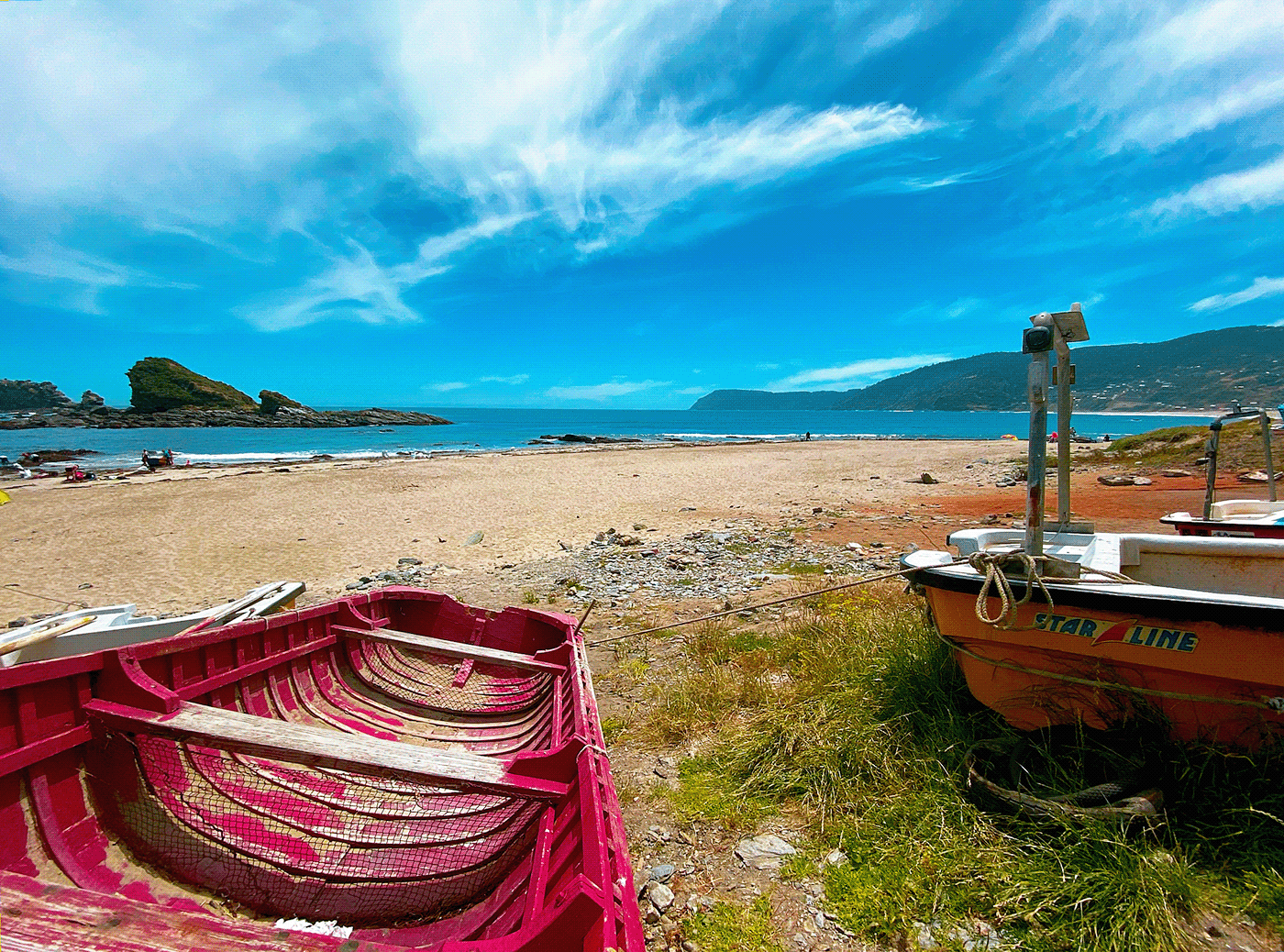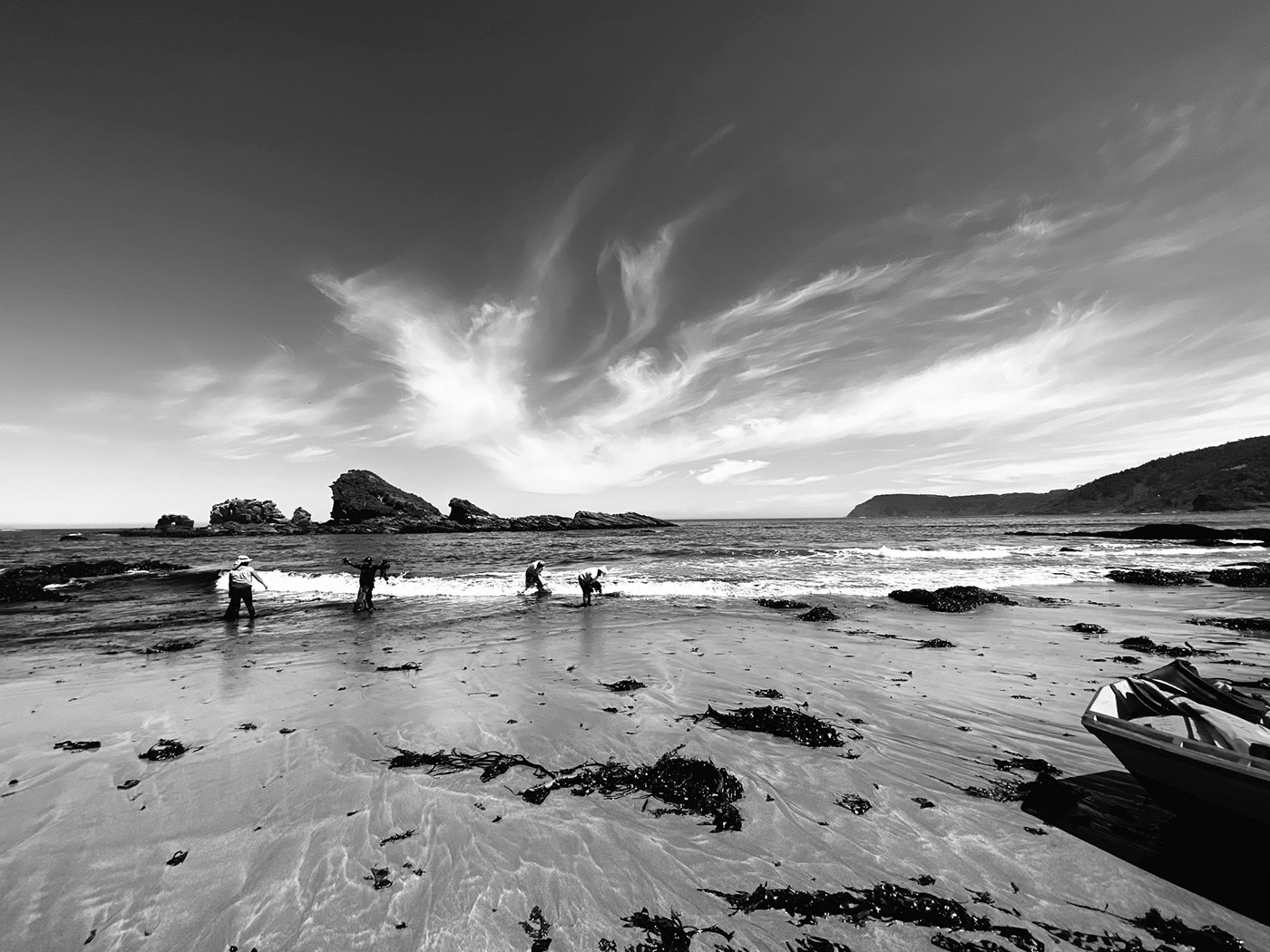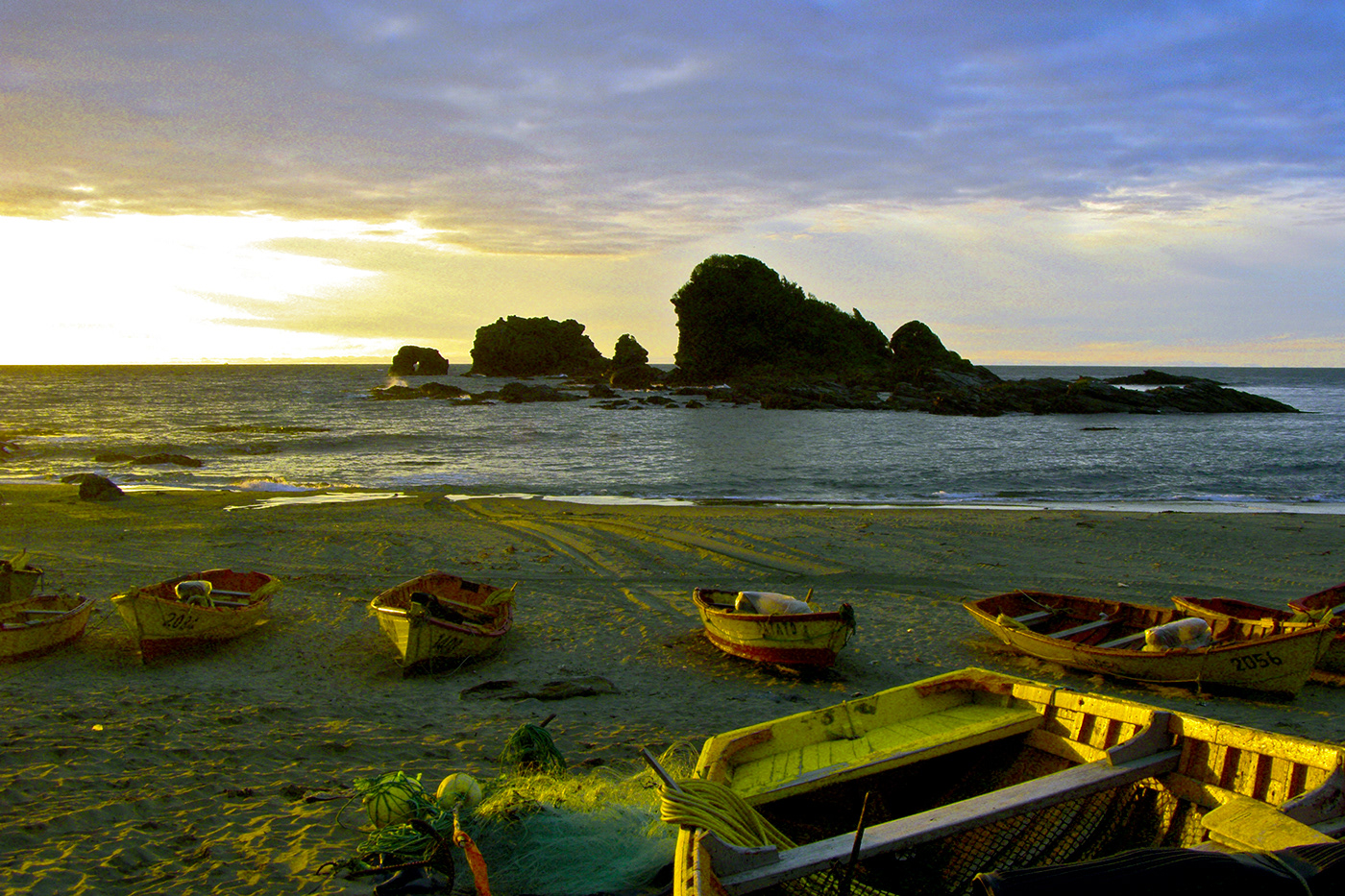Un viaje hacia Pucatrihue y Maicolpue, territorio mapuche-williche, Región de los Lagos, Chile
A trip to Pucatrihue and Maicolpue, mapuche-williche territory, Lakes Region, Chile
En este portafolio se exponen fotografías tomadas en varios momentos; unas tienen más de 10 años. Unas fueron tomadas desde un microbús en movimiento. Hice el viaje entre Osorno y la Costa Pacífica decenares de veces y, cada uno de estos viajes me ha llenado de muchas emociones.
Que me sea permitido dar un homenaje al pueblo mapuche-williche que admiro desde mi primer encuentro en 2008.
Gracias por su atención...
In this portfolio, photographs taken at various times are exhibited; some are over 10 years ago. Some were taken from a moving minibus. I made the trip between Osorno and the Pacific Coast dozens of times and each one of these trips has filled me with many emotions.
May I be allowed to pay tribute to the Mapuche-Williche people that I have admired since my first meeting in 2008.
Thank you for your time...

Pucatrihue - La cueva del Tatita (Abuelito) Wenteyao
Pucatrihue - The cave of Tatita (Grandpa) Wenteyao


La provincia de Osorno, Chile, pertenece a la Región de los Lagos. Se la considera como la puerta de entrada en la Patagonia Norte.
Al este se distingue por varios volcanes, lagos y la Cordillera de los Andes que separa Chile de Argentina. Al oeste, por la Cordillera del Pacífico, medianamente alta y boscosa. Ahí se encuentra el océano Pacífico con numerosas caletas. Pucatrihue y Maicolpue son 2 de estas caletas separadas por unos 25 kilómetros, ambas a no más de 65 kilómetros de la tranquila y opulenta ciudad de Osorno.
La Región de los Lagos alberga a los mapuche-williche, un importante grupo mapuche. Williche, en su idioma chesungun, significa "gente del sur".
The province of Osorno, Chile, belongs to the Region of the Lakes. It is considered the gateway to Northern Patagonia.
To the east it is distinguished by several volcanoes, lakes and the Andes Mountains that separate Chile from Argentina.
To the west, by the Pacific Mountain Range, moderately high and wooded. There is the Pacific Ocean with numerous coves. Pucatrihue and Maicolpue are 2 of these coves. About 25 kilometers apart both and no more than 65 kilometers from the quiet and opulent city of Osorno.
The Lake District is home to the Mapuche-Williche, an important Mapuche group. Williche, in their Chesungun language, means "people of the south."

Camino al mar (U-40)
Way to the sea (U-40)




Maicolpue o Maicolpué, aldea cuyo nombre es el topónimo originado en el chesungun “majkolpwé”, significando “lugar donde hay plumas de tórtola". Es una bahía y balneario que se encuentra en la extensa comuna de San Juan de la Costa poblada mayoritariamente por personas mapuche-williche.
Maicolpue or Maicolpué, a village whose name is the place name originating from the chesungun "majkolpwé", meaning "place where there are turtledove feathers". It is a bay and resort that is located in the extensive commune of San Juan de la Costa, populated mainly by Mapuche-Williche people.









Aguantando el agua helada del Pacífico sur chileno - Mayo de 2023
Enduring the icy water of the Chilean South Pacific - May 2023

Pucatrihue
Pucatrihue es el nombre de una caleta y balneario ubicada en el sur de Chile, en la comuna de San Juan de la Costa. El nombre de esta aldea es un calco del chesungun Pukatrígwe que significa "localidad ubicada en un sitio escarpado". Esta caleta cuenta con numerosos pescadores artesanales y recolectores de cochayuyo, una alga marina propia para el consumo humano y animal.
Pucatrihue is the name of a cove and spa located in the south of Chile, in the commune of San Juan de la Costa. The name of this village is a calque of the chesungun Pukatrígwe which means "town located on a steep site". This cove has numerous artisanal fishermen and collectors of cochayuyo, a marine algae suitable for human and animal consumption.






Pucatrihue es desde tiempos remotos un lugar sagrado para el pueblo mapuche-williche. En efecto, la pequeña isla rocosa que sobresale a unos centenares de metros de la playa, en un mar furioso, guarda celosamente en su interior una sorpresa: una cueva en la que los mapuche-williche rinden honores a una divinidad mítica importante: el "abuelito" (o tatita Wenteyao).
Pucatrihue has been a sacred place for the Mapuche-Williche people since ancient times. Indeed, the small rocky island that stands out a few hundred meters from the beach, in a furious sea, jealously guards a surprise inside: a cave in which the Mapuche-Williche pay homage to an important mythical divinity: the " grandpa" (or grandpa Wenteyao).



Vista sobre la Sruka kura del tatita Huentellao - La casa del tatita Huentellao
View over the Sruka kura of tatita Huentellao - The house of tatita Huentellao
Frente a las rocas isla del Abuelito Huenteao, varias comunidades de la Fütawillimapu (Gran Tierra del Sur) inician o concluyen el nguillatún, un importante rito de rogaciones mapuche. En este lugar sagrado, se le pide permiso al Tatita para realizar el nguillatún.
In front of the rocks of Grandpa Huenteao Island, several communities of the Fütawillimapu (Great Southern Land) begin or conclude the nguillatún, an important Mapuche prayer rite. In this sacred place, Tatita is asked for permission to perform the nguillatún




Una lamuen (hermana mujer) mapuche-williche
A Mapuche-Williche lamuen (woman sister)

Choroy Traiguen, aldea muy cercana a Pucatrihue
Choroy Traiguen, a village very close to Pucatrihue



